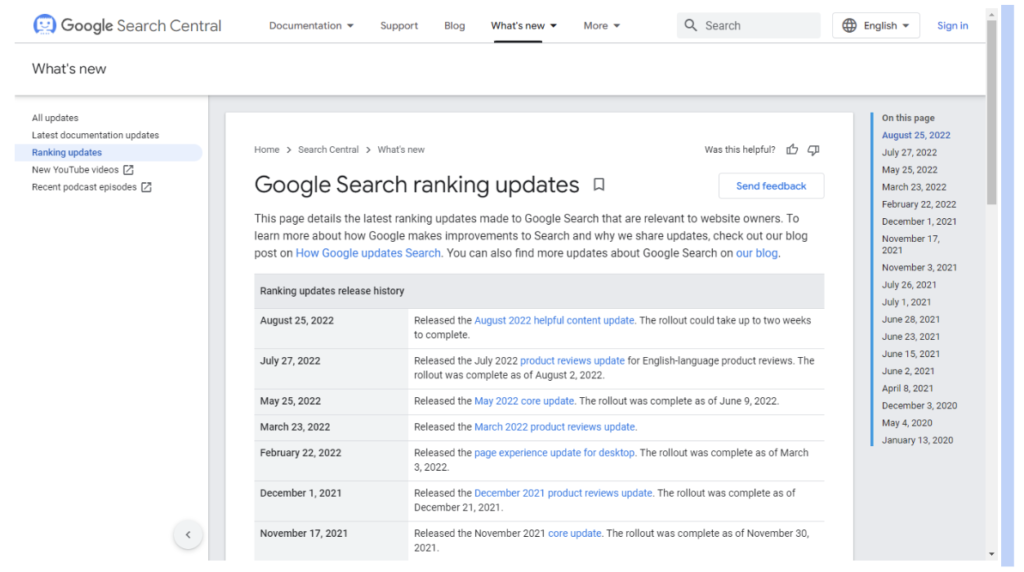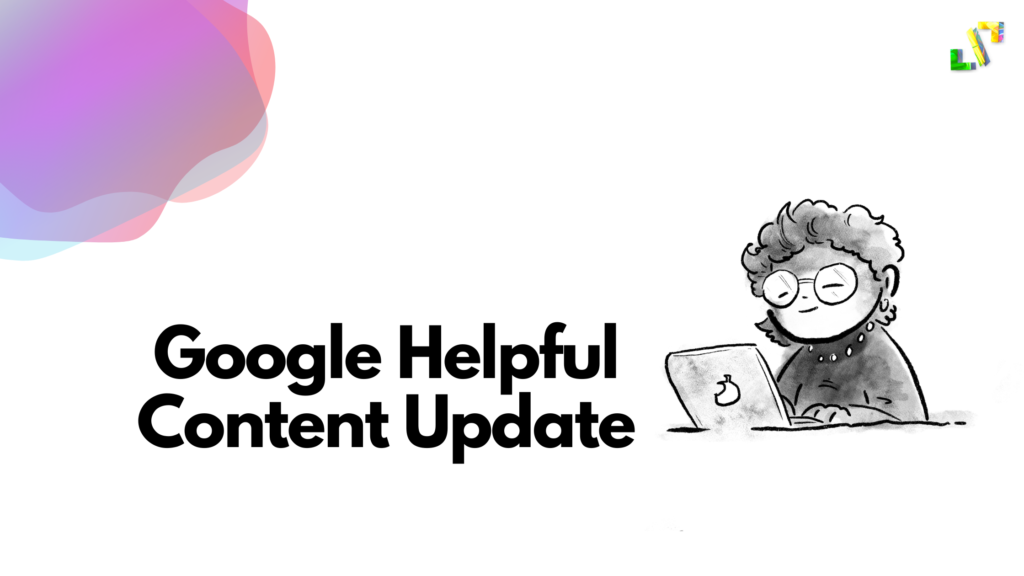Many website owners may find this to be quite significant.
A new search engine ranking factor termed “Helpful Content Update” has just been launched by Google. The site-wide rollout of this new signal is scheduled to begin on August 25, 2022.
Google has prepared a comprehensive guide and I’ve included a summary of Google’s publication and some pointers for getting ready for this future algorithm upgrade.
What is the purpose of Google's recent upgrade on helpful content?
The main goal of this upgrade is to reward content that puts people first.
The helpful content upgrade, according to the official website, seeks to better reward online material where users believe they’ve had a gratifying experience, while content that falls short of a user’s expectations will perform worse.
Google has consistently urged content creators to focus on producing high-quality content while considering SEO. However, in recent years, we have witnessed the emergence of AI writing tools like Rytr, CopyAI, Jasper, etc. that can create automated contents that appears authentic and is SEO friendly but also provide incorrect ways because it is created by a machine.
Meanwhile, other content creators merely produce material that is SEO-friendly and has no genuine value, working with subpar authors. This new signal, in my opinion, is directed at all information that is created just for search engines and does not actually benefit people like you or me.
How can you be sure you abide by Google's useful content updates?
You are on the right road if you can respond “yes” to a series of questions that Google has released. These are the inquiries:
- Do you have an existing or intended audience for your business or site that would find the content useful if it came directly to you?
- Does your content demonstrate first-hand expertise and a depth of knowledge (for example, expertise that comes from having used a product or service, or visiting a place)?
- Does your site have a primary purpose or focus?
- After reading your content, will someone leave feeling they’ve learned enough about a topic to help achieve their goal?
- Will someone be reading your content leave feeling like they’ve had a satisfying experience?
- Are you keeping in mind our guidance for core updates and for product reviews?
In short the new helpful content update is focused on ensuring users get bespoke, helpful content that is written for the people, not only for the search engines alone. Google's Search results will aim to reward the helpful content that satisfy and meet the user's expectations.
We'll try to explain a few of the above queries.
Second question: It seems to encourage the production of information based on personal experiences. Google should receive a stronger signal when genuine product images, trip images, and tales are included.
Third question. This focus is for specialized websites since multi-niche websites lack a core emphasis. If your multi-niche websites are aimed at a certain demographic, like “college,” “former,” and so on, there could be an exemption.
Sixth question: Publishers are producing a lot of material since they recognize that writing reviews are a gold mine for affiliate conversions. The current Google rules for product reviews are the main subject of this query. If you haven’t read it, this would be an excellent time to do so.
Catapult Brand Demand with Strategic Content Marketing
Having a content-first approach helps you to create the authority in the sector and generate demand for your brand.
Schedule a Call with Our Content Manager NowRed flag - Search engine-only content:
On-page SEO and producing material that is SEO-friendly are not against Google’s policies. However, the issue is that publishers just pay attention to the search engine and neglect to satisfy their customers.
Google has provided the following list of red flags in this area if you answer “yes” to any of the following:
- Is the content primarily to attract people from search engines, rather than made for humans?
- Are you producing lots of content on different topics in hopes that some of it might perform well in search results?
- Are you using extensive automation to produce content on many topics?
- Are you mainly summarizing what others have to say without adding much value?
- Are you writing about things simply because they seem to trend and not because you’d write about them otherwise for your existing audience?
- Does your content leave readers feeling like they need to search again to get better information from other sources?
- Are you writing to a particular word count because you’ve heard or read that Google has a preferred word count? (No, we don’t).
- Did you decide to enter some niche topic area without any real expertise, but mainly because you thought you’d get search traffic?
- Does your content promise to answer a question that has no answer, such as suggesting there’s a release date for a product, movie, or TV show when one isn’t confirmed?
How to follow the deployment of Google's useful content update?
On August 18, 2022, Google published information regarding this signal and its rollout today, August 25, 2022. To find out when these and other upcoming improvements will be implemented, keep an eye on Google’s search ranking updates website.

It should take around two weeks to complete this rollout, and I advise you to be prepared for a turbulent end to August and start to September.
There are several things you can do in the interim, though, to make sure this change does not have an impact on your website.
- Get rid of your obsolete and useless information. The video below will assist you in spring cleaning the SEO leftovers if you are eliminating any obsolete material.
- Compare the present content to other web sites to update it. Make sure your page outperforms the competition for the intended query. This comparison need not be one of SEO, but rather on overall quality.
- Improve the value proposition on your website’s front page. When feasible, use social evidence to convince your audience of your credibility.
- Increase internal linking, a signal that has been shown to be beneficial for SEO. It aids search engines in comprehending your complete website’s context.
You might be a little concerned if you have been producing content based on experience, considering consumers, and using SEO best practices. A decent website may frequently suffer because of the Google search engine upgrade rollout since it is never 100% accurate.
If your website content is worthy and you are focusing on your readers, you should be ok. If you find yourself on the other side of the fence, instead of worrying, try to see why Google has penalized your website and re-work to improve the content quality and give better signals.
Reviewed By
-
algorithmchttps://blog.algorithmc.com/author/algorithmc/
-
algorithmchttps://blog.algorithmc.com/author/algorithmc/
-
algorithmchttps://blog.algorithmc.com/author/algorithmc/
-
algorithmchttps://blog.algorithmc.com/author/algorithmc/



